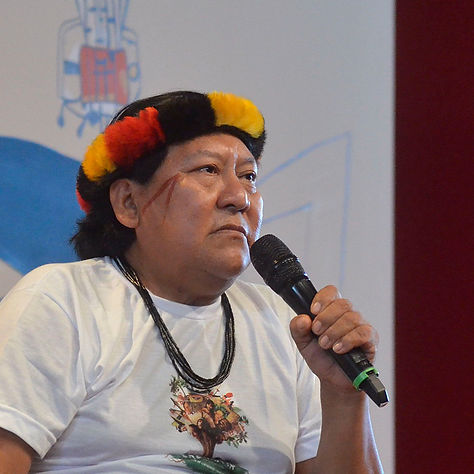





02 --------- CONTEXT
In what context did the Brazilian Conference get out?
In 2018, the Brazilian government withdrew its candidacy for Brazil to host the 25th UN Climate Conference (COP-25), which would be held in 2019. The rotation of COP headquarters in the regions of the globe is a UN practice. In Brazil the ECO-92 and Rio+ 20 resulted in the elaboration and launch of the Sustainable Development Objectives. For Brazil to host the COP-25 would emphasize its international protagonism. In addition, Brazil also loses all the opportunities that a big event can generate for host venues.
Still in 2019, the uncertain debates about the merger of the Ministry of Environment and Agriculture and speculation about the Brazil withdrawal of the Paris Agreement has raised, beyond many objections and doubts about how the country's priorities will help to focus on the goals of the Brazilian NDC. In addition, proposals for changes in law convey risks on flexibilization regarding the predatory exploitation of forest; extinction of civil society councils; delegitimization of the right to ancestral lands and flexibilization of environmental licensings. The familiarization of Brazilian rulers with climate denialism regarding to the confrontation of the climatic crisis and the deforestation; surround us with uncertainties about commitments and climate governance in the country and the ability of the Brazilian Environment Ministry to impose restrictions on other ministerial portfolios.
For all the reasons above, the Conference has emerged as an opportunity to promote dialogue on how to take back the path of climate responsibility, participation of civil society, consolidation of internal pacts, strengthening of local programs for policy adaptation and development of the climate agenda in Brazil.

Não tem dinheiro que pague a nossa floresta, os rios e as vidas do nosso povo
04 --------- SCHEDULE
How has been organized the Brazilian Conference on Climate Change?
We have been organizing thematic meetings for shaping the governance, event schedule, working group scopes and communication since 2019 January. Monthly, civil society organizations, social movements, Brazilian Indians members, scholars, governments and public institutions, and private companies participate in these meetings.
The Conference´s programme will reflect a sequence of dialogues and will adopt proposals that have emerged throughout the work of a full year of reflections, policy analysis and initiatives implemented in Brazil.
In addition to the Brazilian programme and the launching of a final document, the Conference will also apply side events in COP-25 in Chile. It also will address commitments signed by companies and civil society to the Brazilian government and the UNFCCC (United Nations Framework Convention on Climate Change)
The different actors that take part on Conference's organization will also address messages of solid ethical, economic and social commitment regarding the climate, forest and sustainable development agenda in the expectation of demanding greater protagonism from the Brazilian government on climate agenda as well as better alternatives for Brazilian society participation in the decision-make process of next COP.
The Brazilian Conference on Climate Change is a carbon neutral event and will offset its emissions in a transparent, traceable and secure manner with the support of the Amigo do Clima program developed by WayCarbon
